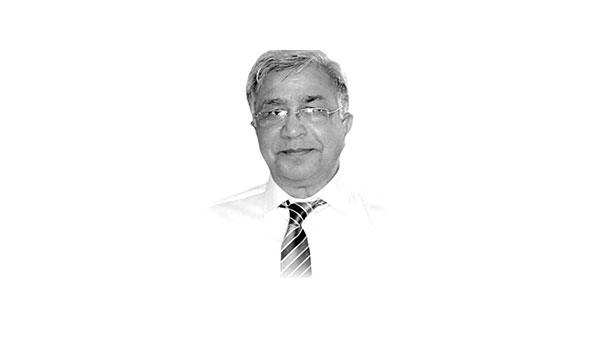Politics of social media
These days politicians, social workers, and teachers appear more on social media than in real life, perhaps because it provides easy, more complete and quicker access to the targeted audience.
The same holds good for the business corporates who would love to grab the cheaper publicity stunts and market their products.
Among all these, politicians are making the best and equally worst use of social media, affecting society’s morals and manners more than ever because most of them are counted among the heroes of their followers.
They acquire a controlling position because of their leadership role, and people in general and young people, in particular, tend to follow their leaders’ walking, sitting, and bearing and mainly how they speak and address their rivals.
The speeches of the political leadership in Pakistan have always influenced young people. Still, the messages, video, audio or textual, have made a mark on the young generation.
It has generated particular social psychology which has begun to determine a nostalgically sad polarized attitude in the masses.
The politicians, however, have mainly damaged social media’s real cause. Although they too have a right to benefit from social media as citizens, they are most prone to maligning their opponents and spreading negativity about their rivals.
Politicians are most likely to tweet, followed by millions of people on Facebook. Facebook is now a mass media and so makes general opinion.
The malignity and negativity spread by political messages seep into the very roots of society.
The same rivalries of social media have turned into social grouping and polarization, which is playing an undermining role at the national level.
Besides this, online TV channels are flooded with opinion-making activity by politicians. Most of them speak about telling the people that the rivals are terrible performers and incapable of holding the reins of the power machine and that they are the only ones who can make Pakistan fly into space or make a social and welfare state.
And to prove them right, politicians use every type of manipulative linguistic jargon. Today’s youth has begun to understand that these people have always been speaking like that without bringing any substantial change.
The worst mode of this political propaganda is the U-Turnism recently adopted by the mainstream politicians and now followed almost at all levels.
What a team of politicians says about a particular phenomenon is reversed by the same group in just one or two months.
This mode of politics had created doubts in the minds of our youth about the credibility of the messages being delivered.
The watchdogs of society realize that with this artificial use of social media, we are giving negative training to our youth because they are prone to follow their superiors.
They learn more from social media than from their educational institutions and families. These days the significant contribution of social media training components is the Machiavellian attitude rampant in our society associated with a narcissist attitude that only ‘Me Right.
’ Moreover, the message of ‘Might is Right’ being spread through social media is damaging the roots of the civilizing mission of the society and hindering the culture of giving space to fellow human beings.
This can have a far-reaching and damaging effect on the overall social construction of society.
Generally speaking, the political discourses have spread violent behaviours more than tendencies of table talk and dialogue to solve the issues and problems through discussion and dialogue.
This prevents the solution of fundamental and ground-level matters for the benefit of the people, and all energies are wasted only on maligning the opponents.
And above all, the whole exercise has resulted in the exposition of false claims and attitudes because no solution follows these hot debates.
People keep on living with their issues without any actual resolution, therefore, the masses are mostly found ridiculing the political discourses on social media.
The need of the hour is to employ the tools of social media in making our people united into a nation by doing away with every type of polarization.
The political discourse should be built around the reality and fact-based projects done by the politicians on the individual and collective levels.
If this political discourse is developed, our community will follow the same, and the negativity, hollowness, falsehood and malignity will be contained automatically.
We would be able to create a happy, healthy, united and progressive Pakistan for our next generations.
There is no denying that social media is a natural ‘Fourth state’ of the foundations of democracy and is playing the most dominant role in the construction of the societies for the future.
Still, we must be well aware of an equal amount of damage it can cause if not used with caution, sagacity and for the collective benefit.
—The writer is a Professor of English at Emerson University, Multan, and has a vast international exposure.










